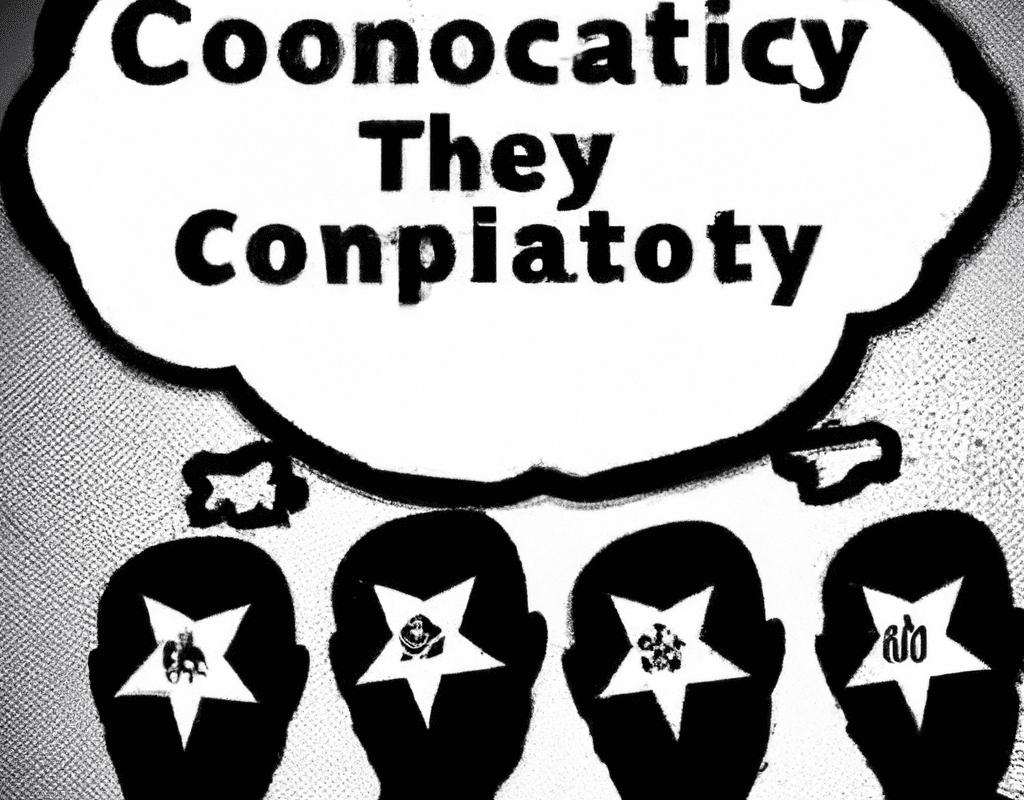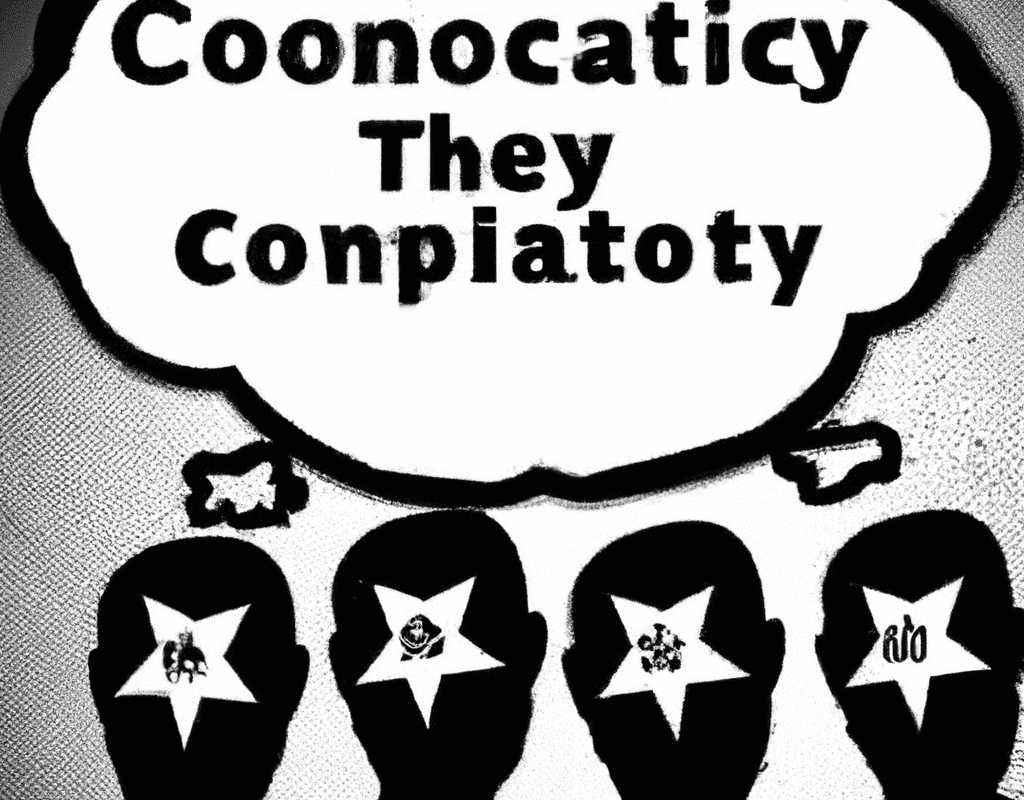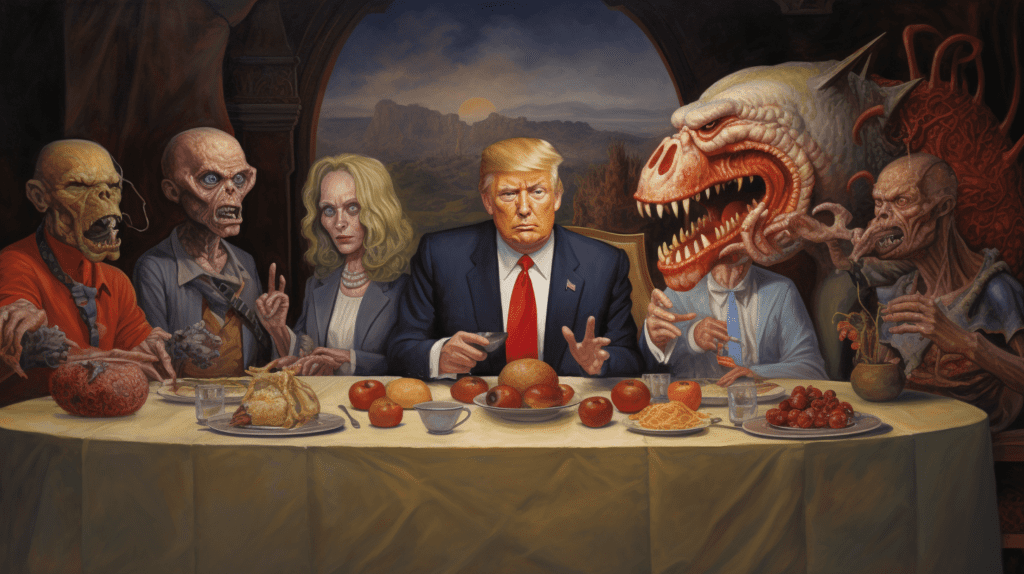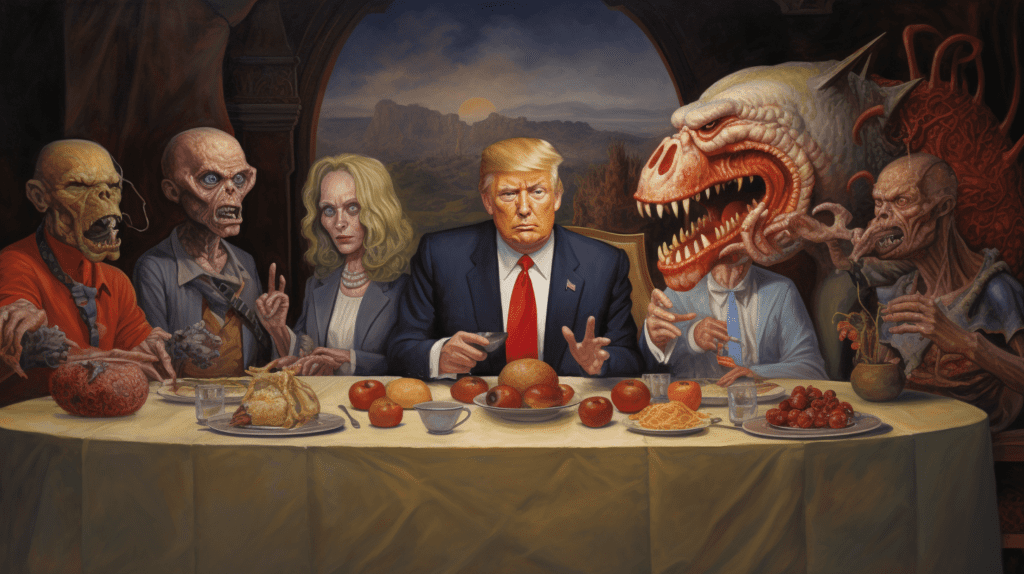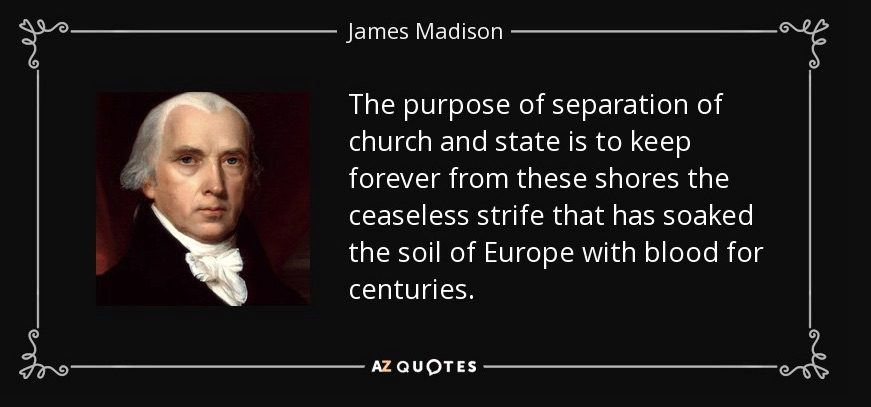A growing body of psychological and cognitive research is showing that the conservative mind has a few things in common. Some research suggests that conservatives may be more attuned to potential threats and have a stronger emotional response to them compared to liberals. For example, studies have found that conservatives tend to have greater physiological responses to images and sounds that evoke fear or disgust.
Other studies have found that conservatives tend to score higher on measures of cognitive closure, which refers to the tendency to seek closure and avoid ambiguity and uncertainty. This may manifest as a preference for traditional values and a resistance to change. Additionally, conservatives may be more likely to rely on heuristics (mental shortcuts) when making decisions, whereas liberals may be more likely to engage in deliberative thinking.
It’s possible these traits at growing scale could present a profound challenge for American democracy in years to come:
- are low in the “openness” trait — seek comfort and familiarity, and avoid novelty or challenge
- dislike change and difference
- tend to be rigid and dogmatic thinkers; close-minded
- have a strong need for closure
- have a high tendency to jump to conclusions while exuding self-righteous conviction
- are high in conscientiousness, but low in conscience — many see life as a game to win at all costs, especially the social dominators
- value loyalty
- more likely than liberals to engage in motivated reasoning
- more likely to have strong religious beliefs
- more likely to engage in magical thinking
- more likely to believe in conspiracy theories
- more likely to exhibit authoritarian personality traits
- more likely to harbor aggressive tendencies
- tend to be controlling
More on conservatives:
Fairness vs. Hierarchy ↗
Liberals believe in fairness; conservatives believe in hierarchy.
Rule of Law vs. Cult of Personality ↗
Democracy is built on the rule of law, but the right-wing tends to prefer a cult of personality.
Artists vs. Fundamentalists ↗
Artists are famously left-wing, and fundamentalists are classically right-wing..

